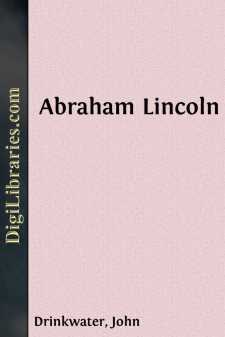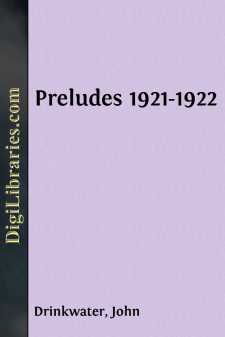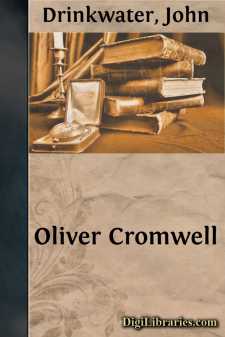Categories
- Antiques & Collectibles 13
- Architecture 36
- Art 48
- Bibles 22
- Biography & Autobiography 815
- Body, Mind & Spirit 144
- Business & Economics 28
- Children's Books 18
- Children's Fiction 14
- Computers 4
- Cooking 94
- Crafts & Hobbies 4
- Drama 346
- Education 58
- Family & Relationships 59
- Fiction 11834
- Games 19
- Gardening 17
- Health & Fitness 34
- History 1378
- House & Home 1
- Humor 147
- Juvenile Fiction 1873
- Juvenile Nonfiction 202
- Language Arts & Disciplines 89
- Law 16
- Literary Collections 686
- Literary Criticism 179
- Mathematics 13
- Medical 41
- Music 40
- Nature 179
- Non-Classifiable 1768
- Performing Arts 7
- Periodicals 1453
- Philosophy 65
- Photography 2
- Poetry 896
- Political Science 203
- Psychology 44
- Reference 154
- Religion 515
- Science 126
- Self-Help 85
- Social Science 82
- Sports & Recreation 34
- Study Aids 3
- Technology & Engineering 59
- Transportation 23
- Travel 463
- True Crime 29
Our website is made possible by displaying online advertisements to our visitors.
Please consider supporting us by disabling your ad blocker.
Abraham Lincoln
by: John Drinkwater
Description:
Excerpt
ABRAHAM LINCOLN
Two Chroniclers:
The two speaking together: Kinsmen, you shall behold
Our stage, in mimic action, mould
A man's character.
This is the wonder, always, everywhere—
Not that vast mutability which is event,
The pits and pinnacles of change,
But man's desire and valiance that range
All circumstance, and come to port unspent.
Agents are these events, these ecstasies,
And tribulations, to prove the purities
Or poor oblivions that are our being. When
Beauty and peace possess us, they are none
But as they touch the beauty and peace of men,
Nor, when our days are done,
And the last utterance of doom must fall,
Is the doom anything
Memorable for its apparelling;
The bearing of man facing it is all.
So, kinsmen, we present
This for no loud event
That is but fugitive,
But that you may behold
Our mimic action mould
The spirit of man immortally to live.
First Chronicler: Once when a peril touched the days
Of freedom in our English ways,
And none renowned in government
Was equal found,
Came to the steadfast heart of one,
Who watched in lonely Huntingdon,
A summons, and he went,
And tyranny was bound,
And Cromwell was the lord of his event.
Second Chronicler: And in that land where voyaging
The pilgrim Mayflower came to rest,
Among the chosen, counselling,
Once, when bewilderment possessed
A people, none there was might draw
To fold the wandering thoughts of men,
And make as one the names again
Of liberty and law.
And then, from fifty fameless years
In quiet Illinois was sent
A word that still the Atlantic hears,
And Lincoln was the lord of his event.
The two speaking together:So the uncounted
spirit wakes
To the birth
Of uncounted circumstance.
And time in a generation makes
Portents majestic a little story of earth
To be remembered by chance
At a fireside.
But the ardours that they bear,
The proud and invincible motions of
character—
These—these abide.
SCENE I.
The parlour of Abraham Lincoln's House at Springfield, Illinois, early in 1860. MR. STONE, a farmer, and MR. CUFFNEY, a store-keeper, both men of between fifty and sixty, are sitting before an early spring fire. It is dusk, but the curtains are not drawn. The men are smoking silently.
Mr. Stone (after a pause): Abraham. It's a good name for a man to bear, anyway.
Mr. Cuffney: Yes. That's right.
Mr. Stone (after another pause): Abraham Lincoln. I've known him forty years. Never crooked once. Well.
He taps his pipe reflectively on the grate. There is another pause. SUSAN, a servant-maid, comes in, and busies herself lighting candles and drawing the curtains to.
Susan: Mrs. Lincoln has just come in. She says she'll be here directly.
Mr. Cuffney: Thank you.
Mr. Stone: Mr. Lincoln isn't home yet, I dare say?
Susan: No, Mr. Stone. He won't be long, with all the gentlemen coming.
Mr. Stone: How would you like your master to be President of the United States, Susan?
Susan: I'm sure he'd do it very nicely, sir.
Mr. Cuffney: He would have to leave Springfield, Susan, and go to live in Washington....





